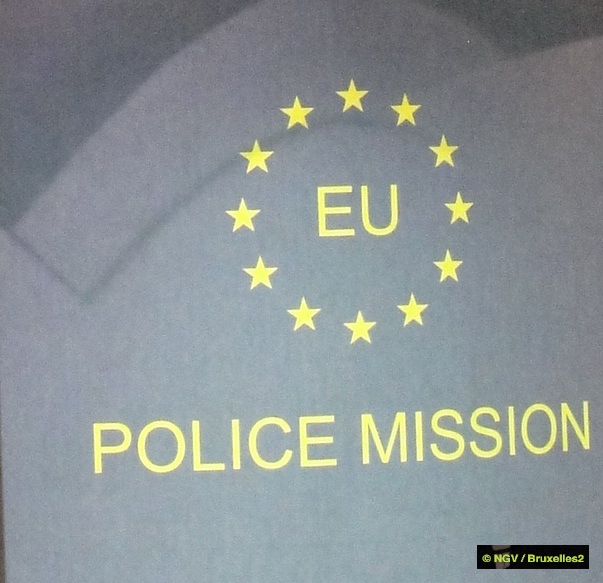The 27 are trying to put some order in their foreign policy
(BRUSSELS2) This should be a document "in annex" to the conclusions of the European summit which is being held in Brussels on 16 September. A document entitled "internal arrangements to improve the Union's external policy European Union", which seems a little dry as it stands. But tries, concretely, to find some answers to one of the structural weaknesses of the European Union: its lack of unity abroad. In other words: how have an approach"more integrated, more coherent"(more effective) of the EU externally? Not out of general goodness but to protect"its strategic interests". The word is pronounced, and the orientation given.
Remedying the imperfections of "Lisbon"
Despite hopes, in fact, the entry into force of the Lisbon Treaty has not settled everything. Quite simply, no doubt, because we didn't want to settle everything. And that text is the result of a compromise between divergent positions. A new structure (the diplomatic service) has indeed been put in place (and is about to be) and new legal bases have been prepared. But that is not enough to unite politicians. Few Member States are prepared to make a leap of sovereignty, by reducing some of their strategic interests, to the benefit of the European interest. Result, instead of the single voice, sought for the European Union, we have... 3 today, at least, in Brussels: Barroso for the Commission, Ashton for the High Representative, Van Rompuy for the European Council , not to mention those of the various chancelleries in the 27 Member States... To make the EU more effective abroad, the political will is still lacking. And to make it emerge, there is no other process than refining the procedures, putting oil in the cogs of the many existing mechanisms.
To take a more concrete image, we are a bit like facing a novice driver who has been offered a new car, parked on a slope, with the handbrake. Everything is running in... To start, you have to release the handbrake, and accelerate gently... Otherwise you stall or you end up in the ditch... And to get out of the parking lot, it's no more easy.
Pragmatic solutions to put an end to "Brussels"
So don't expect any revolution from the solutions envisaged in these two pages of the document. But don't put them in the trash. Because, despite the very diplomatic tone, they respond to real problems that can be expressed in slightly more brutal terms (I take a risk :-).
- Diplomacy must be global. The 27 thus encourage the practice of "orientation debates" in the thematic councils, not only at the level of Foreign Affairs, but also for key questions such as climate change, energy policy, trade, justice and internal affairs. In other words, a more global approach.
- Put an end to (or lessen) the rivalry between the EU and its member states. The research of "synergies" in the policies of external relations with third countries developed by the EU and those developed bilaterally by the Member States. And when we say synergy, it is a weak word to say that we must avoid competition. Examples quite obvious: those of Russia or China, where we see Member States developing positions that are sometimes contradictory to the position of Europe, or of their close neighbour, to defend their own (commercial) interests. exchanges of information and consultations, more regular and upstream of summits with the EU's main partners.
- Each ambassador must have a unique position to defend. The 27 thus call for "closer and regular" coordination between the various institutional actors of the EU. This should allow EU ambassadors, new look, to be able to defend "coherent positions" on all the strategic interests and objectives of the Union.
- Put an end to Brussels (the squabble of the presidents). Practical arrangements were thus found for representation at the G8 and G20 between the President of the European Council and the President of the European Commission (Van Rompuy was at the G8 while Barroso was at the G20) with the prior definition of a position unified between the 27 (1). We must continue "on this path" say the 27.
- Stop hovering over topics. The EU needs "medium-term planning", as the 27 say. The High Representative has thus been asked - in coordination with the European Commission and the Foreign Ministers of the 27 - to assess the prospects for relations with all the strategic partners and, in particular, to highlight "our interests and the possible levers to achieve them". Each European summit should also focus on two or three key subjects - a position supported by France (2). And a "reflection" must be undertaken on the "frequency, format and follow-up" of these summits which should be "better targeted".
- The diplomatic service is not reserved for a happy few fews. Finally, the 27 recall the basis of the new diplomatic service: to ensure the coherence of the EU's external action as a whole by providing "support" and analyzes to all the institutions concerned (European Council, Council, Commission, High Representative) and not just one or the other...
Read:
(1) download: united position of the EU for the G20 summit
(2) "we have to find other working methods" said Bernard Kouchner at the Gymnich last weekend. Economics or Politics as a vector of foreign policy?
(Nicolas Gros-Verheyde)


